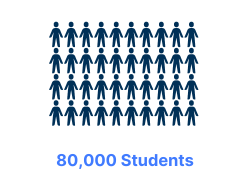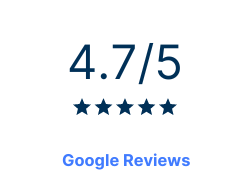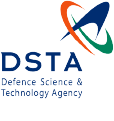
Mastering programming languages is akin to acquiring a toolkit of superpowers. 'R programming' stands out as one such superpower, enhancing skills across diverse domains, including Power BI, Excel, and SQL.
This article illuminates the multifaceted ways in which learning 'R programming' can elevate proficiency, enabling professionals to excel in their fields and unearth insights that were once beyond reach.
Elevating Data Analysis in Excel
✅Data Visualisation: While Excel offers charting capabilities, 'R programming' introduces a new dimension with libraries like ggplot2. These libraries empower users to create sophisticated, customisable data visualisations that transcend Excel's native capabilities.
Rich, informative plots and graphs provide a deeper understanding of data trends and patterns, enabling more impactful decision-making.
✅ Statistical Analysis: R shines through its diverse array of statistical packages and libraries, enabling the execution of advanced statistical analyses that often transcend the capabilities of Excel's native functions.
✅ Advanced Modeling: R programming' takes data modeling to the next level. With its robust statistical capabilities, professionals can craft complex predictive and statistical models that surpass the limitations of Excel.
This enables accurate forecasting, simulation, and analysis of intricate data scenarios.
Empowering SQL and Database Management
✅ Data Manipulation: Much like Python, R excels in executing data manipulation tasks with precision. Its prowess becomes particularly valuable when dealing with intricate data transformations and cleaning processes, preparing datasets for seamless loading into databases.
✅ Statistical Analysis: 'R programming' harmonises seamlessly with SQL databases, extending the potential for statistical analysis. Leveraging 'R programming's' statistical packages, professionals can conduct in-depth analyses on retrieved data, uncovering hidden insights and correlations that traditional SQL queries might overlook.
✅ Integrating Analysis: 'R scripts' are not confined to standalone analyses; they can be used to perform intricate analytical tasks on data extracted from SQL databases. This flexibility enables professionals to customise analyses and derive more nuanced insights, enhancing decision-making processes.
Fortifying Mathematics and Statistics
✅ Advanced Statistical Analysis: R boasts an expansive repository of statistical functions and packages, positioning it as an exceptional instrument for delving into sophisticated data analysis, hypothesis testing, and intricate modeling tasks.
✅ Data Visualisation: Statisticians and mathematicians wield 'R programming' to convey complex results with clarity. 'R's' visualisation capabilities transform intricate mathematical concepts into intuitive visual representations, enabling effective communication of findings.
✅ Symbolic Mathematics: Algebraic manipulation and calculus calculations are elevated with 'R programming.' Its symbolic mathematics capabilities empower mathematicians to engage in intricate mathematical tasks, leading to deeper insights and innovative solutions.
Revolutionising Economics and Finance
✅ Econometric Analysis: R emerges as a preferred choice for econometric modeling, time series analysis, and predictive forecasting. Its robust toolkit equips economists with potent instruments to decipher complex economic trends and unravel insights from intricate data sets.
✅ Financial Modeling: 'R's packages extend to financial modeling, enabling finance professionals to construct sophisticated models, assess risks, and evaluate investment strategies with precision.
✅ Data Visualisation: Economists and finance experts leverage 'R's' visualisations to transform economic indicators and financial trends into compelling, engaging visuals that resonate with stakeholders.
Transcending Specialised Fields
The prowess of 'R programming' goes beyond traditional domains, infusing innovation and insight across a spectrum of specialised fields.
Social Sciences and Psychology
In the realm of Social Sciences and Psychology, 'R programming' serves as a beacon of illumination, shedding light on intricate human behavior and cognitive processes.
✅ Survey Analysis: Social scientists often work with complex survey data that requires meticulous analysis. 'R programming' offers a robust platform to handle and dissect such data, enabling researchers to explore correlations, trends, and patterns within the responses.
The ability to generate meaningful insights from surveys contributes to evidence-based decision-making in areas such as public policy, sociology, and market research.
✅ Psychometrics: Understanding the reliability and validity of psychological tests is crucial in psychometrics. 'R programming' offers specialised packages that empower researchers to delve into the intricacies of test development, assessment, and refinement.
These packages assist in evaluating the accuracy of tests, ensuring that they measure what they are intended to measure. Psychometric analysis becomes more robust and accurate, ultimately enhancing the quality of psychological assessments.
✅ Text Analysis: Leveraging R's natural language processing prowess, you can embark on profound text analysis journeys. Whether it's dissecting sentiment in social media posts or unraveling intricate textual patterns, R empowers you to extract rich insights from the realm of unstructured text data.
Environmental Science and Geography
In Environmental Science and Geography, 'R programming' becomes a compass for navigating the complexities of our planet's dynamics.
✅ Spatial Analysis: R has robust spatial analysis packages that can be utilised for mapping, geospatial analysis, and understanding environmental patterns.
✅ Climate Modeling: As climate change continues to be a critical concern, 'R programming' emerges as a powerful tool for building climate models. Environmental scientists can simulate various scenarios, studying how changes in factors such as greenhouse gas emissions impact the climate.
These models aid in making informed predictions about climate trends, guiding policies and interventions aimed at mitigating environmental challenges.
✅ Data Visualisation: Geographical data often requires visualisation that effectively communicates spatial trends and patterns. 'R programming' comes equipped with visualisation libraries that enable researchers to create captivating maps and graphs.
Whether depicting temperature variations, land cover changes, or urban sprawl, 'R's' visualisations serve as invaluable tools for conveying complex geographical information in an accessible manner.
Machine Learning and Data Science
The realm of Machine Learning and Data Science thrives on 'R programming,' transforming raw data into actionable insights.
✅ Advanced Modeling: R offers a wide range of machine learning packages, allowing data scientists to build predictive models, classification algorithms, and clustering methods.
✅ Feature Engineering: 'R programming's' libraries assist in the critical process of feature engineering, where input data is transformed to enhance the performance of machine learning algorithms.
These libraries enable professionals to preprocess, transform, and select relevant features, thus improving the quality of input data and leading to more accurate predictive models.
✅ Ensemble Methods: Ensemble methods combine the predictions of multiple machine learning models to produce a more robust and accurate result. 'R programming' offers packages that facilitate the implementation of ensemble methods, boosting the predictive power and reliability of models.
This is particularly valuable in scenarios where precision is paramount, such as in medical diagnosis or financial forecasting.
Healthcare and Medical Research
In the realm of Healthcare and Medical Research, 'R programming' serves as a lens, enabling professionals to see the unseen and decode the complexities of medical data.
✅ Clinical Trials Analysis: R is used for designing and analysing clinical trials, helping medical researchers determine the efficacy of treatments.
✅ Medical Imaging Analysis: Radiologists and medical imaging researchers harness 'R programming' to process and analyse medical images, enabling them to extract valuable insights.
From identifying anomalies in X-rays to quantifying features in MRI scans, 'R programming' aids in enhancing diagnostics, treatment planning, and medical research.
Language and Linguistics:
In the intricate domain of Language and Linguistics, 'R programming' becomes a cipher for decoding language variations and uncovering linguistic intricacies.
✅ Corpus Analysis: R can assist linguists in analysing large text corpora, identifying language patterns, and studying linguistic phenomena.
✅Language Variation Analysis: Language varies across groups, regions, and cultures. 'R programming' equips linguists with statistical tools to analyse and interpret these variations.
By examining linguistic patterns, researchers gain insights into language evolution, social dynamics, and cultural shifts, contributing to a richer understanding of human communication.
Education and Learning Sciences
In the arena of Education and Learning Sciences, 'R programming' takes on the role of a mentor, guiding educators and researchers toward more effective teaching and learning strategies.
✅ Educational Data Analysis: R can be used to analyse educational data, assess learning outcomes, and identify trends in student performance.
✅ Item Response Theory: Effective assessments are the cornerstone of education. 'R programming' supports item response theory analysis, helping educators develop reliable and valid assessments.
This analysis aids in creating assessments that accurately measure students' knowledge and skills, informing instructional strategies and curriculum design.
✅ Learning Analytics: With the rise of online educational platforms, learning analytics has become a vital tool. 'R programming' assists in analysing learning behaviour and engagement patterns.
A Tapestry of Knowledge and Innovation
The thread of 'R programming' weaves a tapestry of knowledge and innovation across these specialised fields. It empowers professionals to transcend the boundaries of traditional methodologies, enabling deeper insights, informed decisions, and creative problem-solving. The versatility of 'R programming' illuminates the unique challenges of each domain, amplifying the impact of professionals as they navigate uncharted territories, drive positive change, and pioneer a future fueled by data-driven insights and interdisciplinary collaboration.
Learn more by taking our R Programming Courses, starting with Beginner to Advanced, then Machine Learning in R.

 Australia
Australia Singapore
Singapore
 Hong Kong
Hong Kong
 Malaysia
Malaysia
 Philippines
Philippines
 Thailand
Thailand
 Indonesia
Indonesia
 phone
phone
 email
email
 enquiry
enquiry
























